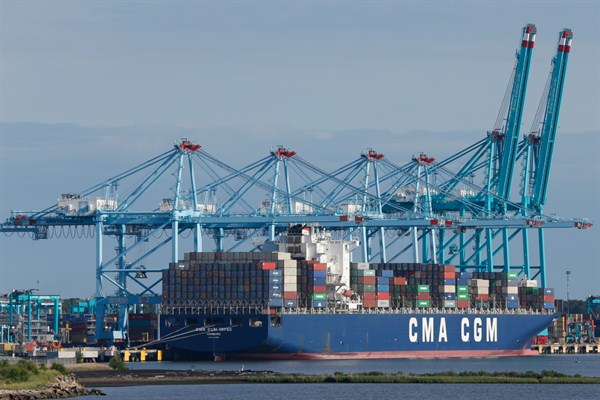President Donald Trump likes trade wars because he thinks they are “easy to win,” as he infamously put it, and because he thinks they will help improve the trade balance. Trump claims past American presidents have been weak, allowing other countries to take advantage of the United States in trade negotiations. As evidence, he points to the large American trade deficit. But any economist worth her salt will tell you that the deficit doesn’t reflect what Trump thinks it does. Instead, it simply reflects the propensity of Americans to spend more than they save and invest.
Trump is wrong about a lot of things when it comes to trade, including that the trade arrangements to which the United States is a party reflect poor negotiating skills. To the contrary, they overwhelmingly reflect U.S. negotiating preferences. But Trump does have a point that some of the negotiators’ priorities don’t reflect those of many Americans. Indeed, policymakers have manifestly failed to adopt the kinds of parallel policies that would compensate workers displaced by free trade agreements or provide the skills and resources needed to take advantage of globalization. That—not new tariffs—should be the focus of U.S. trade and economic policy going forward, which would entail some rebalancing to make it fairer and more inclusive.
In a new paper for the Center for Global Development, I explore three areas where American trade policy currently falls short: a tariff structure that discriminates against poor consumers at home and poor workers abroad; unilateral trade preference programs to promote development that have big gaps; and free trade agreements that have become increasingly tilted in favor of business interests.

